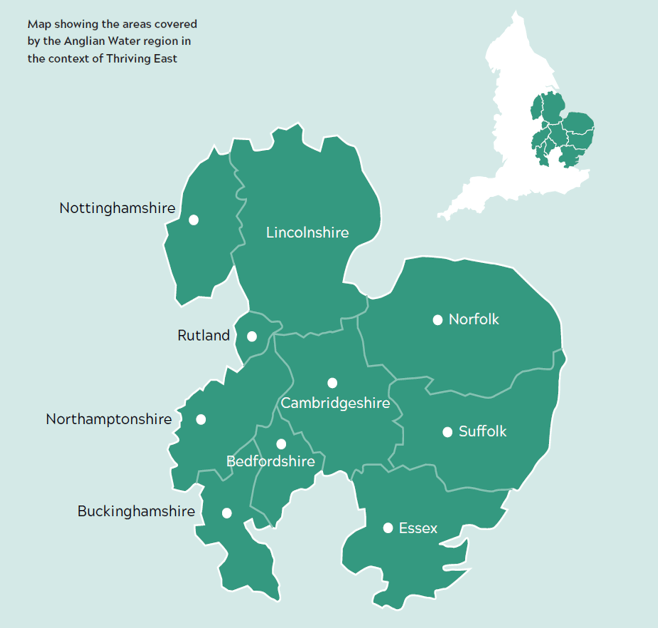{{selectedAlertBand.alertDescription}}
{{selectedAlertBand.incident.heading}}
Message last updated - Friday 30th January 2026
{{selectedAlertBand.incident.heading}}
Message last updated - Friday 30th January 2026
Message last updated - Friday 30th January 2026
{{selectedAlertBand.alertLinkText}} {{selectedAlertBand.alertLinkText}}
For further updates subscribe
Thriving East is research, commissioned with Capital Economics, on the region served by Anglian Water. It deep dives into the unique challenges faced by the diverse landscapes, businesses and people living in our region, offering a comparison against the other regions of England.
Delivering on our purpose to bring environmental and social prosperity to the region we serve is becoming increasingly challenging. We manage water in a region that is water scarce, vulnerable to climate change, has many precious environmental sites to protect, a fast-growing population and a sizeable agricultural economy that relies on water to feed the nation.
Recognising the strong link in this region between water resources, economic and housing growth alongside existing high levels of water stress, we commissioned Thriving East to give us a richer understanding of how our region could develop over the next twenty years and how we can support those needs.
Data provided by Capital Economics, an independent economic research consultancy. Thriving East looks at data at both a national and regional level through the lenses of climate change, economy and society, sustainable growth and nature and environment. The analysis allows for the assessment of the relative severity of the region we serve against other geographies in England. It also examines the unique challenges and opportunities at a county-level within the Anglian Water boundary.
Key highlights from the research:

On the back of Thriving East, we have run an extensive regional engagement programme to understand what is important to our regional stakeholders. These findings have informed our AMP8 business plan (2025-2030), where we are responding to what our region needs.